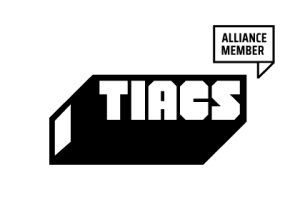How Much Money Can I Save with Solar Energy?
There are plenty of reasons to consider going solar in 2021. Aside from the obvious environmental benefits, solar energy can also save you money in the long run. As costs of production continue going down, solar energy in 2021 has become more financially promising than ever. If you’ve recently found yourself weighing up the costs and benefits of solar energy, we’re here to show you that solar energy is a great investment.
Do you really save money with solar panels?
It’s the million dollar question: do solar panels really save you money? Believe it or not, but for most households, installing solar panels really is a good investment in the long run. As electricity prices continue to skyrocket across Australia, solar panel prices are at a record low. We’re not the only ones who are advocates for solar; households across the country have been jumping at the opportunity of getting good quality solar at affordable prices. According to Kane Thornton, the CEO of Clean Energy Council, Australia’s renewable energy generation has almost doubled in the past five years, increasing from 14.6 per cent in 2015 to 27.7 per cent in 2020.
Part of the appeal of solar rests in the fact that it can save you a lot of money in the long term and that it’s not actually that unaffordable to set up. For one, there are government incentives out there that encourage homeowners to install solar panels in their home. These incentives effectively work to reduce some of the upfront costs of solar, making solar an affordable and accessible option for many people.
Once installed, your solar panels will cut down on your electricity bills because you will no longer have to rely as heavily on the central energy grid. Depending on your electricity usage and where you live, this could make a huge difference to your annual household bills. It’s been estimated that at today’s standard energy rates, Australian households can expect to save at least $20,000 on their energy bills over the life of their solar panels.
If you install a battery as well as panels, you could be looking at thousands more in savings. With battery storage, you’ll be able to store the excess solar energy you generate during the day and use it whenever you like – whether it be rain, hail, or shine. This means that you’ll be even less reliant on the grid.
How long does it take for solar panels to pay for themselves?
The amount of time it will take for you to get your money back on solar depends on a number of factors; for example, the amount of panels you had installed, your overall energy usage, and the amount of sunlight you receive. However, generally speaking, it’s widely estimated that a standard solar system in 2021 has a payback period of 3 to 5 years. Not too bad considering that in 2015, the estimated payback period was 5 to 8 years! As technology continues to advance, the payback period will likely get shorter.
Of course, payback periods will vary depending on a wide variety of factors, so if you want a more accurate estimate, we’d recommend using an online payback calculator such as this one. While there isn’t a one-size-fits-all answer to this question, you might be surprised to find just how quickly your solar panels will pay for themselves in 2021.
Can you run your whole house on solar power?
The beauty of solar energy is that the technology is constantly developing and evolving. What once seemed impossible is now being done with ease. As the industry continues to refine itself, solar panels are now more efficient than ever. With the right combination of solar panels, inverters, and battery packs, it’s definitely possible to run an entire home with a solar panel system.
However, although it’s possible to run your whole house on solar power, it’s not common or even advisable. Battery packs certainly do reduce reliance on the central energy grid, but going completely off-grid isn’t feasible for most homeowners because quite simply, most homeowners consume far more energy than they’re able to produce and store with a solar energy system. In addition to this, if you’re already connected to the grid, going off the grid requires huge upfront costs. That means for now, central electricity grids are here to stay. But with solar technology rapidly advancing, who knows what the future holds.
Do you still pay for electricity if you have solar panels?
Since it’s not yet entirely feasible to go completely off-grid with a solar energy system, you’ll still be paying some electricity bills even if you have solar panels installed in your home. However, since you’ll be relying more on the power generated by your solar panels and less on the power generated by the grid, you’ll naturally end up saving money on your electricity bills. If you have a battery installed, this will significantly reduce your bills yet again.
Ready to make the switch to solar? Now’s as good a time as ever. At Jim’s Energy, we’re passionate about providing our customers with honest, high-quality advice. If you’re curious to learn more about how solar energy can save you money in the years to come, give us a call on 13 15 46 or get in touch online.
Related Jim’s Group News
– Tips to Reduce Your Household Power Bill and Make Your Home More Energy Efficient.
– 8 Tips for Keeping Your House Warm This Winter.
– A Beginner’s Guide to Solar Power in Australia.
– What’s the Best Time of Year to Get Solar Panels Installed?
– Everything You Need to Know About the Australian Government Solar Rebate.







